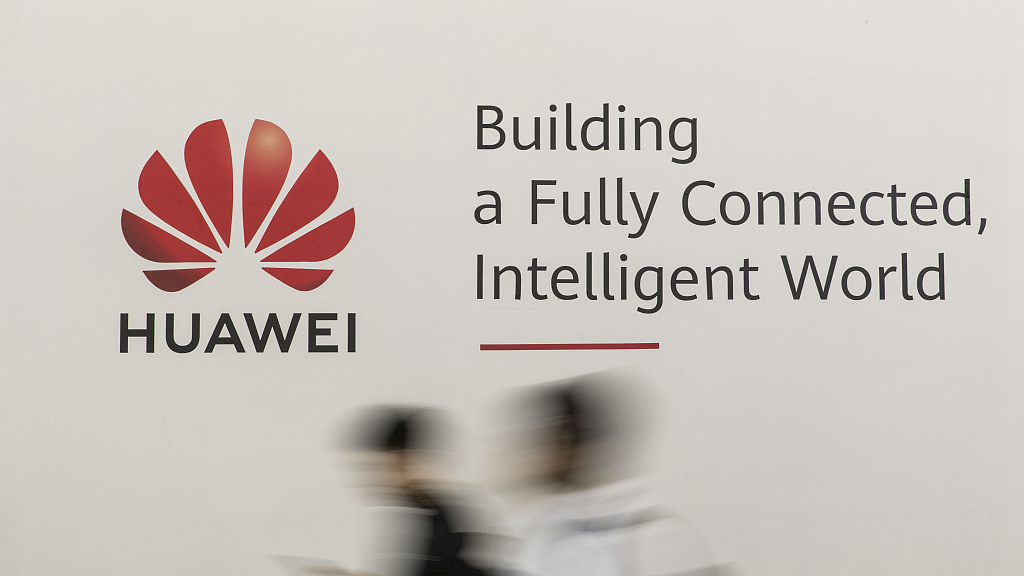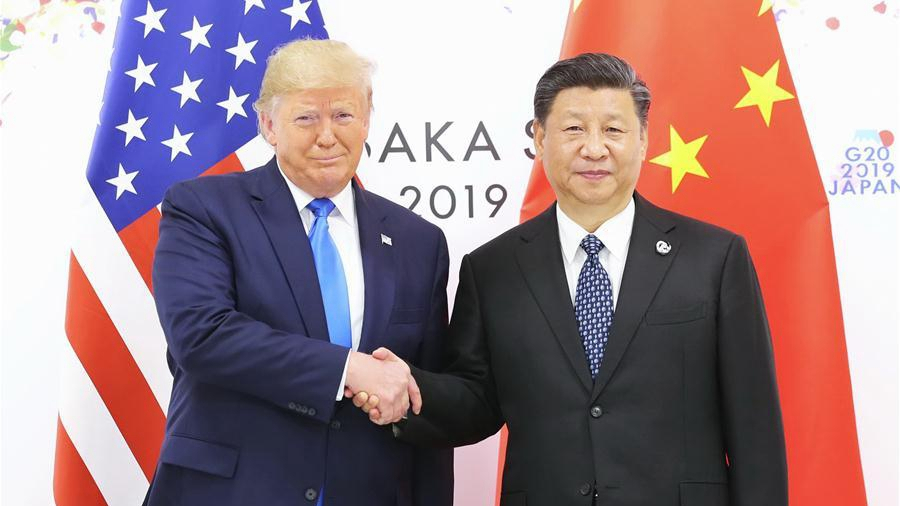

Editor's Note: Tom Fowdy is a British political and international relations analyst and a graduate of Durham and Oxford universities. He writes on topics pertaining to China, the DPRK, Britain and the U.S. The article reflects the author's opinion and not necessarily the views of CGTN.
In the press conference following his G20 summit meeting with Chinese President Xi Jinping, U.S President Donald Trump announced that Shenzhen Telecommunications firm Huawei would once again be allowed to engage in business with American technology companies.
The administration had placed the company on a commerce department “entity list” a few weeks before, which effectively blacklisted it within the U.S. However, following a positive breakthrough in trade talks, the president has decided to reverse course to an unspecified degree, noting that U.S. firms had “complained” to him about the ban posing a significant blow to their business.
For Trump to publicly reconsider his decision is welcome news. The administration’s decision to ban Huawei in the first place, which now appears to have been somewhat motivated by a desire to gain trade war leverage, was an abrasive, impulsive and ill thought-out decision which posed consequences for technology companies and markets throughout the world.

Chinese President Xi Jinping meets U.S. President Donald Trump in Osaka, Japan, June 29, 2019. /Xinhua Photo
To recognize such is common sense, as the costs of attempting to run Huawei into the ground would have ultimately been costly. Although it is not yet clear how much lenience will be offered to the firm, given that Trump has continued to press on with the question of “national security,” such news will offer significant relief to the company’s executives. At a minimum, business in fields such as computer chips, semiconductors and operating systems will likely be resumed.
Huawei has repeatedly sat at the center of Trump’s trade war against China. The company is symbolic of the conflict as a whole, as its rapidly growing significance in the global telecommunications market appears to have generated the belief in Washington that it was leapfrogging American capabilities and therefore a strategic threat. The campaign to get other countries to ban Huawei from their 5G networks failed completely bar one or two countries, which did not ease such frustrations.
Seeing this, as the trade war escalated, the Trump administration intensified their campaign against the company, fueled by these strategic concerns and a desire to use it as leverage in trade talks. Thus in May, the White House placed the firm on an “entity” list, effectively banning it from American technology markets. Hawks in Washington celebrated the ban, but bosses and executives found themselves outraged and perplexed.
With Huawei serving as an enormous market for semiconductors, microchips and software, American technology companies were at risk of enormous losses in the midst of the ban. In addition, to the interdependent nature of supply chains and other companies relying on U.S. made parts, many international companies too found a gun held to their head over Huawei. As a result, the White House immediately faced corporate backlash over what was quite clearly, a messy and ill-thought-out decision with enormous ramifications for global technology markets.

U.S. Trade Representative Robert Lighthizer (L) with Chinese Vice Premier Liu He at Diaoyutai State Guesthouse in Beijing, February 15, 2019. /VCG Photo
Given this, as Trump secured a breakthrough with China to resume trade talks, as well as Beijing demanding Huawei’s delisting as a condition for dialogue, the President announced today in his press conference that American companies would be allowed to sell to Huawei again. The statement is, of course, vague, and he still utilized “national security” as a condition. This has left observers wondering whether it will be removed from the entity list, or dealt with on a case by case basis.
However, while it is clear that Huawei will never dominate the American telecommunication markets in the current political atmosphere, nevertheless the comments were optimistic and reasonable enough to suggest that many aspects of “business as usual” will be able to resume.
If national security is the criterion, then it is likely everyday sales for components such as semiconductors, microchips and operating systems for things like smartphones can resume uninterrupted, as these aspects were never labeled a threat to “U.S. national security.”
Thus, as a whole, while the extent remains unclear, this is positive news for Huawei. Undoubtedly, the idea to blacklist a global technology firm from operating in the U.S. was not a reasonable nor productive move for Washington or the wider world. The president today appeared to acknowledge that reality, and in turn, some space will be given. This should, in theory, be tailored to preventing large scale disruptions in global technology supply chains, as well as to pacify the outcry from U.S. tech bosses.
(If you want to contribute and have specific expertise, please contact us at opinions@cgtn.com.)

Copyright © 2018 CGTN. Beijing ICP prepared NO.16065310-3
Copyright © 2018 CGTN. Beijing ICP prepared NO.16065310-3